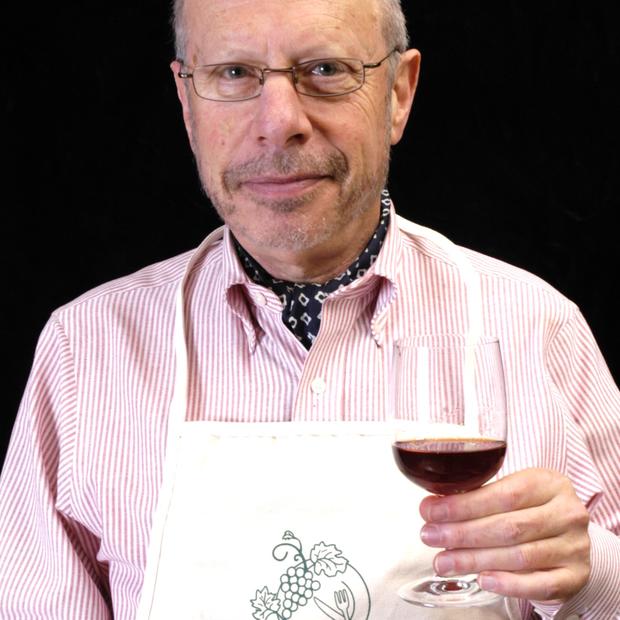There's a fierce battle raging in the seats of America's sports venues, and it's got nothing to do with the game on the field. It's the uncompromising struggle to satisfy the hunger and thirst of the fans.
With half a dozen Husky games this season in addition to the full schedule of pro football and Major League Soccer, CenturyLink Field is ground central this year in that battle, even before Chris Hansen's Sonic howitzers start shelling the battlefield.
Those beer and hot dog vendors? They're cannon-fodder, the front-line foot soldiers.
Back in the safety of their lavish headquarters, the executives of Compass Group, Aramark, Centerplate and Sodexo are like Cold-War generals playing high-stakes war games. Across the United States, every stadium, every hospital, every convention center, prison, college, airport and zoo is a strategic target. You build a campaign to win the contract. Then, after the deal is signed, you maximize your advantage by forging alliances with the local management so that everyone wins — fans, teams, facilities, vendors.
Compass Group, the industry leader, takes in $10 billion a year by serving 13,000 locations. Their entry in the Recreational Food Service Industry, as it's known, represents a relatively small percentage of that total (they're into hospitals, convention centers and college campuses), but it's still huge. The Compass Group food-service subsidiary Levy Restaurants, founded in Chicago 30 years ago, has contracts at more than 50 ballparks (football, baseball, basketball, soccer) including CenturyLink Field and KeyArena in Seattle.
Its competitor, Centerplate, has a lock on Safeco Field. Aramark has the Washington State Convention Center.
Now, you'd think that these big bruisers would be content to sit around and pick their teeth, but you'd be wrong. Quite the contrary.
Over the years, "stadium food" has become a synonym for tired and unimaginative. But that's clearly not the reputation that the home team wants to have. There's pressure on the industry — from the public, from the teams, from the chefs themselves — to be both hipper and tastier. Revenue from concessions is a fundamental element of the sports industry. So it's crucial for fans to be well fed and happy.
As we saw earlier this year at the Safe, one solution is to bring in local celebrity chefs like Ethan Stowell, local ingredients and more local food. Baseball, with its sloooow pacing, is the ideal sport for snacking, of course — all the more reason to offer an enormous variety of food choices. At the Clink (CenturyLInk), they're amping up the excitement by bringing food trucks into the plaza, by serving Uli's Famous Sausage and Beecher's Mac & Cheese, and by pouring Northwest wines on the stadium's Club Level.
Guiding those efforts at the Clink is executive chef Jon Severson, a 12-year veteran of Levy Restaurants. There's a salmon BLT, a "Seahawks Hot Dog" (complete with Seattle-style cream cheese and caramelized onions), and a Trophy Cupcake named for Marshawn Lynch (both dry and goopy, alas). Some of the items are destined for the upper-end suites. But others, like the sampler trio of Uli's sausages ($9) will be served throughout the stadium.
Severson, a Midwesterner who studied at the Culinary Institute of AmericaI in California, had to make some tough decisions. A Seahawks game doesn't draw the same fans as a Sounders game, and he can't change the menu every week. So he has to anticipate.
At the Clink, football's a more leisurely game (less so than baseball, obviously). It's more social (think tailgate parties, think food trucks) and, in terms of food preferences, more of a hot dog event. Soccer fans tend to be more adventurous, but the game is more intense. So it's important to offer cooked-to-order food from mobile carts in the stands. In the suites and sky boxes, there's more leeway because the counters and bars are mere steps away — sandwiches stuffed with prawns, that salmon BLT, elegant desserts, premium wines (from Efeste and Sparkman) by the glass.
Everything's on the menu for every event, though. Severson's workforce is well-trained — many of them long-term and full-time. It's nothing like running a quick-serve restaurant downtown, but the challenges are similar; the food's got to be fresh and tasty or the fans will eat elsewhere.
There are plenty of restaurants down in Sodo, and most of them have flat-screen TVs. It helps a lot, too, if the home team wins.

